Rayting:
6.9/
10 32.4K votes
Language: Spanish | English
Release date: 2 April 2009
In 1967, Ernesto 'Che' Guevara leads a small partisan army to fight an ill fated revolutionary guerrilla war in Bolivia, South America.
Where to Watch
-

Buy
-

Buy
Similar Movies
7.4
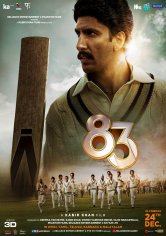
'83 2021
6.9
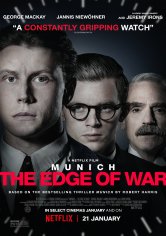
Munich: The Edge of War 2021
6.6

Being the Ricardos 2021
6.6

Benedetta 2021
7.1
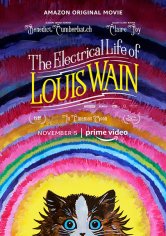
The Electrical Life of Louis Wain 2021
6.8

Worth 2020
7.1

The Eyes of Tammy Faye 2021
9.6
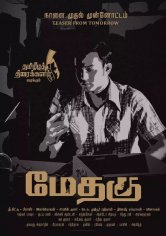
Methagu 2021
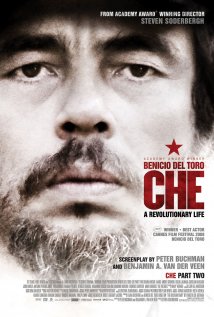

User Reviews
It helps to know that this was originally brought to life as a Terrence Malick screenplay about Che's disastrous forray in Bolivia. Financing fell through and Soderbergh stepped in to direct. He conceived a first part and shot both back to back as one film trailing Che's rise and fall.
He retained however what I believe would be Malick's approach: no politics and a just visual poem about the man behind the image, exhaustive as the horrible slog through Cuban jungles and windswept Andean plateaus must have been. Malick applied this to his New World that he abandoned Che for, lyrical many times over.
But Soderbergh being an ambitious filmmaker, he puzzled over this a little more. Here was a man of action at the center of many narratives about him, some fashioned by himself, conflictingly reported as iconic revolutionary or terrorist, charismatic leader or ruthless thug, erudite Marxist thinker or brutal soldier.
So how to visually exemplify this contradicting ethos as our film about him? And how to arrange a world around this person in such a way as to absorb him whole, unfettered from narrative - but writing it as he goes along - off camera - but ironically on - and as part of that world where narratives are devised to explain him. As flesh and bones, opposed to a cutout from a history book.
One way to do this, would be via Brecht and artifice. The Korda photograph would reveal lots, how we know people from images, how we build narratives from them. Eisenstein sought the same in a deeper way, coming up with what he termed the 'dialectical montage': a world assembled by the eye, and in such ways as the eye aspires to create it.
So what Soderbergh does, is everything by halves: a dialectic between two films trailing opposite sides of struggle, glory and failure, optimism and despair. Two visual palettes, two points of view in the first film, one in the presence of cameras hoping to capture the real person, the other were that image was being forged in action.
The problem, is of course that Brecht and Eisenstein made art in the hope to change the world, to awaken consciousness, Marxist art with its trappings. By now we have grown disillusioned with the idea, and Soderbergh makes no case and addresses no present struggles.
But we still have the cinematic essay about all this.
The first part: a narrative broadcast from real life, meant to reveal purpose, ends, revolution. The second part: we get to note in passing a life that is infinitely more expansive than any story would explain, more complex, beautiful, frustrating, and devoid of any apparent purpose other than what we choose as our struggle, truly a guerilla life.
I imagine a tremendous film from these notions. Just notice the remarkable way Part 2 opens. Che arrives at Bolivia in disguise, having shed self and popular image. No longer minister, spokesman, diplomat, guerilla, he is an ordinary man lying on a hotel bed, one among many tourists. Life could be anything once more, holds endless possibility. Cessation.
What does he do? He begins to fashion the same narrative as before, revolution again. Chimera this time. Transient life foils him in Bolivia. Instead of changing the world once more, he leaves behind a story of dying for it. We have a story about it as our film, adding to the rest.
Fmovies: Che: Part One was a fascinating experiment, which did not only tell a very interesting story, but it also tried to do something different with the "biopic" genre.Che: Part Two is the excellent culmination of this experiment.
This movie offers all of the same attributes from the first one, from the extraordinary performances (specially from Benicio del Toro) to Steven Soderbergh's brilliant direction, without forgetting its intention of breaking with the conventional rules from the biopics.That is what I admire from Soderbergh's experiments...they always try to do something different and unusual, and they succeed most of the times.
The final message from this film is perfect, and it includes everything we have been told about Che Guervara's life.The only fail I found on Che: Part Two is that a few parts felt a bit irrelevant.
In summary, I give Che: Part Two a very enthusiastic recommendation because, as the first one, it is a brave and fascinating experiment which challenges the spectator and leaves us thinking.
Part Two picks up... not where the last film left off. As part of the quasi-conventionality of Steven Soderbergh's epic 4+ hour event, Che's two stories are told as classic "Rise" and "Fall" scenarios. In Part Two, Che Guevara, leaving his post as a bureaucrat in Cuba and after a failed attempt in the Congo (only in passing mentioned in the film), goes down to Bolivia to try and start up another through-the-jungle style revolution. Things don't go quite as well planned, at all, probably because of Che's then notorious stature as a Communist and revolutionary, and in part because of America's involvement on the side of the Bolivian Government, and, of course, that Castro wasn't really around as a back-up for Che.
As it goes, the second part of Che is sadder, but in some ways wiser than the first part. Which makes sense, as Guevara has to endure low morale from his men, betrayals from those around him, constant mistakes by grunts and nearby peasants, and by ultimately the enclosing, larger military force. But what's sadder still is that Guevara, no matter what, won't give in. One may see this as an incredible strength or a fatal flaw- maybe both- but it's also clear how one starts to see Che, if not totally more fully rounded, then as something of a more sympathetic character. True, he did kill, and executed, and felt justified all the way. And yet it starts to work on the viewer in the sense of a primal level of pity; the sequence where Guevara's health worsens without medicine, leading up to the shocking stabbing of a horse, marks as one of the most memorable and satisfying of any film this year.
Again, Soderbergh's command of narrative is strong, if, on occasion, slightly sluggish (understandable due to the big running time), and one or two scenes just feel totally odd (Matt Damon?), but these are minor liabilities. Going this time for the straight color camera approach, this is almost like a pure militia-style war picture, told with a great deal of care for the men in the group, as well as Guevara as the Lord-over this group, and how things dwindle down the final scene. And as always, Del-Toro is at the top of his game, in every scene, every beat knowing this guy so well- for better and for worse- that he comes about as close to embodiment as possible. Overall, the two parts of Che make up an impressive package: history as drama in compelling style, good for an audience even if they don't know Che or, better, if they don't think highly of him. It's that special. 8.5/10
Che: Part Two fmovies. In terms of a (loose) description, part one of this two part series covers Ernesto Che Guevara's travels, alongside Fidel Castro, from Mexico to Cuba and his rise, organizing and leading his fighters, finally culminating in Castro's seizure of power in Cuba from Fulgencio Batista. The second film, rather different in tone and spirit from its companion, focuses primarily on his efforts in Bolivia, tracking his gradual downfall Little of Guevara's personal life aside from his activism is detailed, which is both a little surprising and somewhat vexing, especially when one considers the combined duration of both films is well over four hours. There is, of course, nothing inherently wrong with a filmed biography limiting itself to just one or two particular aspects of its subject's diverse life; such an approach can ensure better focus on the material, as opposed to risking the potential the audience may become lost in a rambling, disjointed account in which too few events in the subjects life are explored with adequate depth and clarity.
The pair of films, overall, are most memorable for their sequences of Guevara's guerrilla army training and battling in the jungles and waters of Cuba and Bolivia and especially for the climactic battles near the end of each film. They may each be overlong and not chart as much territory as they perhaps should. Some may wish they would delve further into the obscure intimacies of his life, especially for the benefit of those already familiar with his activism. Others may feel the film does not question his militant means often or strongly enough. No, the films are not perfect, but lesser movies than these have been well received and, as such, these two are worth a look.
Ironically the most talked-about American film in the 2008 New York Film Festival is 98% in Spanish. The extra-long film's controversy began at the Cannes Festival. There were love-hate notices, and considerable doubts about commercial prospects. As consolation the star, Benicio Del Toro, got the Best Actor award there. I'm talking about Steven Soderbergh's 'Che,' of course. That's the name it's going by in this version, shown in New York as at Cannes in two 2-hour-plus segments without opening title or end credits. 'Che' is certainly appropriate since Ernesto "Che" Guevara is in almost every scene. Del Toro is impressive, hanging in reliably through thick and thin, from days of glorious victory in part one to months of humiliating defeat in part two, appealing and simpatico in all his varied manifestations, even disguised as a bald graying man to sneak into Bolivia. It's a terrific performance; one wishes it had a better setting.
If you are patient enough to sit through the over four hours, with an intermission between the two sections, there are rewards. There's an authentic feel throughout--fortunately Soderbergh made the decision to film in Spanish (though some of the actors, oddly enough in the English segments especially, are wooden). You get a good outline of what guerrilla warfare, Che style, was like: the teaching, the recruitment of campesinos, the morality, the discipline, the hardship, and the fighting--as well as Che's gradual morphing from company doctor to full-fledged military leader. Use of a new 9-pound 35 mm-quality RED "digital high performance cine camera" that just became available in time for filming enabled DP Peter Andrews and his crew to produce images that are a bit cold, but at times still sing, and are always sharp and smooth.
The film is in two parts--Soderbergh is calling them two "films," and the plan is to release them commercially as such. First is 'The Argentine,' depicting Che's leadership in jungle and town fighting that led up to the fall of Havana in the late 50's, and the second is 'Guerrilla,' and concerns Che's failed effort nearly a decade later in Bolivia to spearhead a revolution, a fruitful mission that led to Guevara's capture and execution in 1967. The second part was to have been the original film and was written first and, I think, shot first. Producer Laura Bickford says that part two is more of a thriller, while part one is more of an action film with big battle scenes. Yes, but both parts have a lot in common--too much--since both spend a large part of their time following the guerrillas through rough country. Guerrilla an unmitigated downer since the Bolivian revolt was doomed from the start. The group of Cubans who tried to lead it didn't get a friendly reception from the Bolivian campesinos, who suspected foreigners, and thought of the Cuban communists as godless rapists. There is a third part, a kind of celebratory black and white interval made up of Che's speech at the United Nations in 1964 and interviews with him at that time, but that is inter-cut in the first segment. The first part also has Fidel and is considerably more upbeat, leading as it does to the victory in Santa Clara in 1959 that led to the fall of the dictatorship of Fulgencio Batista in Cuba.
During 'Guerilla' I kept thinking how this could indeed work as a quality European-style miniseries, which might begin with a shortened version of Walter Salles's '
Neatly skipping over everything from the coup in Cuba to his undercover entry into Bolivia, part two of Soderbergh's portrayal of Che Guevara is that of the tragic hero. As with Che – Part One, this rather rambling guerrilla warfare escapade through the colourful mountains of Bolivia is probably destined to disappoint more people than it will satisfy, so why was the film (and particularly Benicio Del Toro's performance) so loudly praised at Cannes?
James Rocchi, for instance, called it, a work of art that's, "not just the story of a revolutionary," but, "a revolution in and of itself." The Guardian's Peter Bradshaw called it a "flawed masterpiece." I return to my original contention for Part One – that the value lies particularly in depiction of a hero figure. And in an age when there is a surfeit of poor hero role-models, could it not be salutary to see a strongly honourable one, even if stripped of some of the less endearing episodes of his life? This is the psychological hero enshrined by the great Scottish essayist, Thomas Carlyle, in his seminal book, Heroes and Hero Worship. Heroes can be real or imaginary (or somewhere in-between). But should genuinely inspire us to higher goals, a higher purpose. Compare this with the unrealistic 'heroes' of standard Western storytelling: where a person undergoes trials and tribulations before obtaining a barely-believable reward – usually everlasting love or material wealth – as if by divine studio intervention. Real heroes have an excess of moral courage – not Lost Ark dare-devilishness or James Bond super-toys. They rise, and empower others to rise, to be the best that they can be. In Part One, Che succeeds. In Part Two, he fails. It is not for want of moral courage but since a) not all good plans can succeed and b) being human, mistakes are inevitable.
Guevara's intellectual clarity is flawed when he equates conditions that justify armed struggle with conditions that make that armed struggle able to succeed. It is a serious miscalculation.
High in the mountains from La Paz, the colours are breathtaking. There is an air of mise-en-scene authenticity that was occasionally lacking in Che - Part One (The U.S. would not allow Soderbergh to film in Cuba.) Visual treats are heightened by maximising natural light and the extreme flexibility and realism offered with groundbreaking RED cameras. This is a high performance digital cine camera with the quality of 35mm film and the convenience of pure digital. Designed for flexibility and functionality, the package weighs a mere 9 lbs. "Shooting with RED is like hearing the Beatles for the first time," says Soderbergh. "RED sees the way I see . . . so organic, so beautifully attuned to that most natural of phenomena – light." If Che had stopped with the successful Cuban revolution it would have enshrouded him with an almost mystical invincibility. That he fails in Bolivia shows not only that he has human limitations but that it is his moral virtues that are remembered, not the political triumph. Critics will say – and with some justification - that his armed struggle inspired much less noble characters to achieve tin-pot dictatorships. His development of guerrilla fighting tactics are not good or bad in themselves (and have since been used for both).
But for all its praiseworthiness, the film often seems to lack dramatic and narrative tension. We stumble from one escapade to another, knowing that he will eventually meet his death. I f